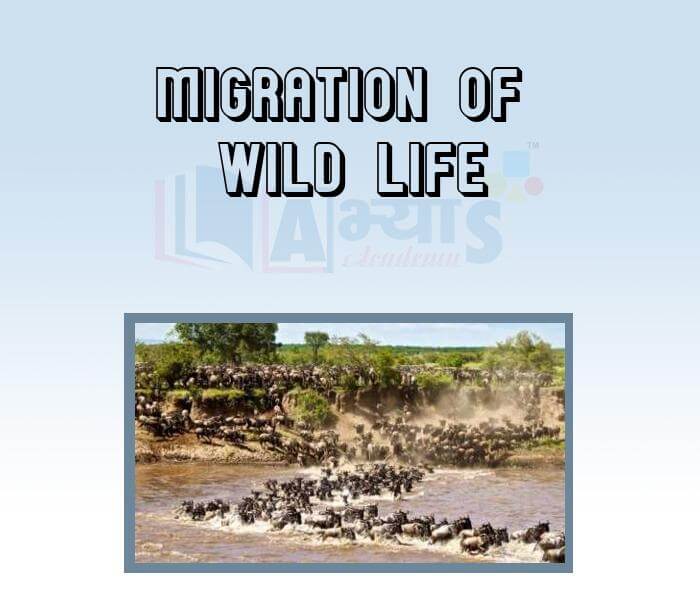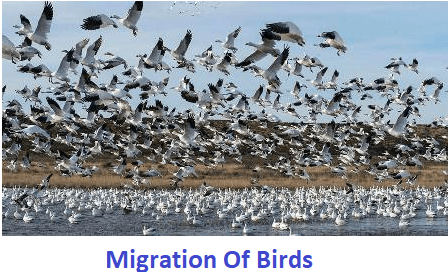Migration of Wild Life












Migration of Wild Life
The seasonal movement of animals from one habitat to another is called migration. Species like birds, fish, insects migrate to a place of favorable condition for certain period of time, then travel back to natural habitat.
Birds Migration: Birds migrate from one place to other due to following reasons :
Advantages of Migration :
For Example :
1. The arctic tern makes the longest known migration of any bird, by traveling form the arctic to the Antarctic and then back again.
2. Humpback Whale ( Megaptera novaeangliae) : This mammal have the longest migration of any mammals. One female Humpback whale travels more than 9800 km from tropics.
3. Red crab of Christmas island : They move along the island together. They travel 5 km 12 hours over 5 days.


From the following ___________________ cannot migrate. | |||
| Right Option : D | |||
| View Explanation | |||
Birds migrate from one place to other because ______________________. | |||
| Right Option : C | |||
| View Explanation | |||
__________________ of the following organism have longest migration period. | |||
| Right Option : A | |||
| View Explanation | |||
Students / Parents Reviews [10]
One of the best institutes to develope a child interest in studies.Provides SST and English knowledge also unlike other institutes. Teachers are co operative and friendly online tests andPPT develope practical knowledge also.

Aman Kumar Shrivastava
10thIt has a great methodology. Students here can get analysis to their test quickly.We can learn easily through PPTs and the testing methods are good. We know that where we have to practice

Barkha Arora
10thAbhyas is a complete education Institute. Here extreme care is taken by teacher with the help of regular exam. Extra classes also conducted by the institute, if the student is weak.

Om Umang
10thMy experience with Abhyas is very good. I have learnt many things here like vedic maths and reasoning also. Teachers here first take our doubts and then there are assignments to verify our weak points.

Shivam Rana
7thMy experience with Abhyas academy is very good. I did not think that my every subject coming here will be so strong. The main thing is that the online tests had made me learn here more things.

Hiya Gupta
8thBeing a parent, I saw my daughter improvement in her studies by seeing a good result in all day to day compititive exam TMO, NSO, IEO etc and as well as studies. I have got a fruitful result from my daughter.

Prisha Gupta
8thIt was good as the experience because as we had come here we had been improved in a such envirnment created here.Extra is taught which is beneficial for future.

Eshan Arora
8thI have spent a wonderful time in Abhyas academy. It has made my reasoning more apt, English more stronger and Maths an interesting subject for me. It has given me a habbit of self studying

Yatharthi Sharma
10thIt was a good experience with Abhyas Academy. I even faced problems in starting but slowly and steadily overcomed. Especially reasoning classes helped me a lot.

Cheshta
10thAbhyas Methodology is very good. It is based on according to student and each child manages accordingly to its properly. Methodology has improved the abilities of students to shine them in future.
